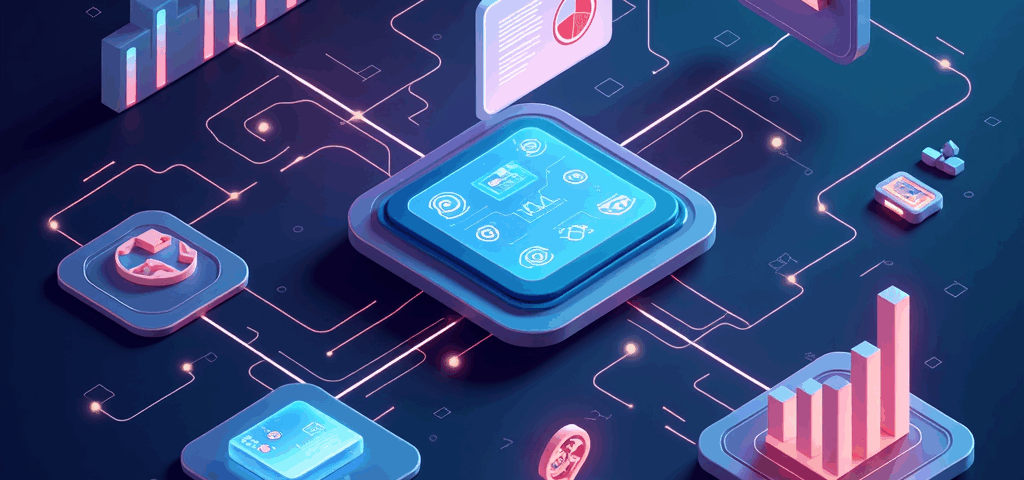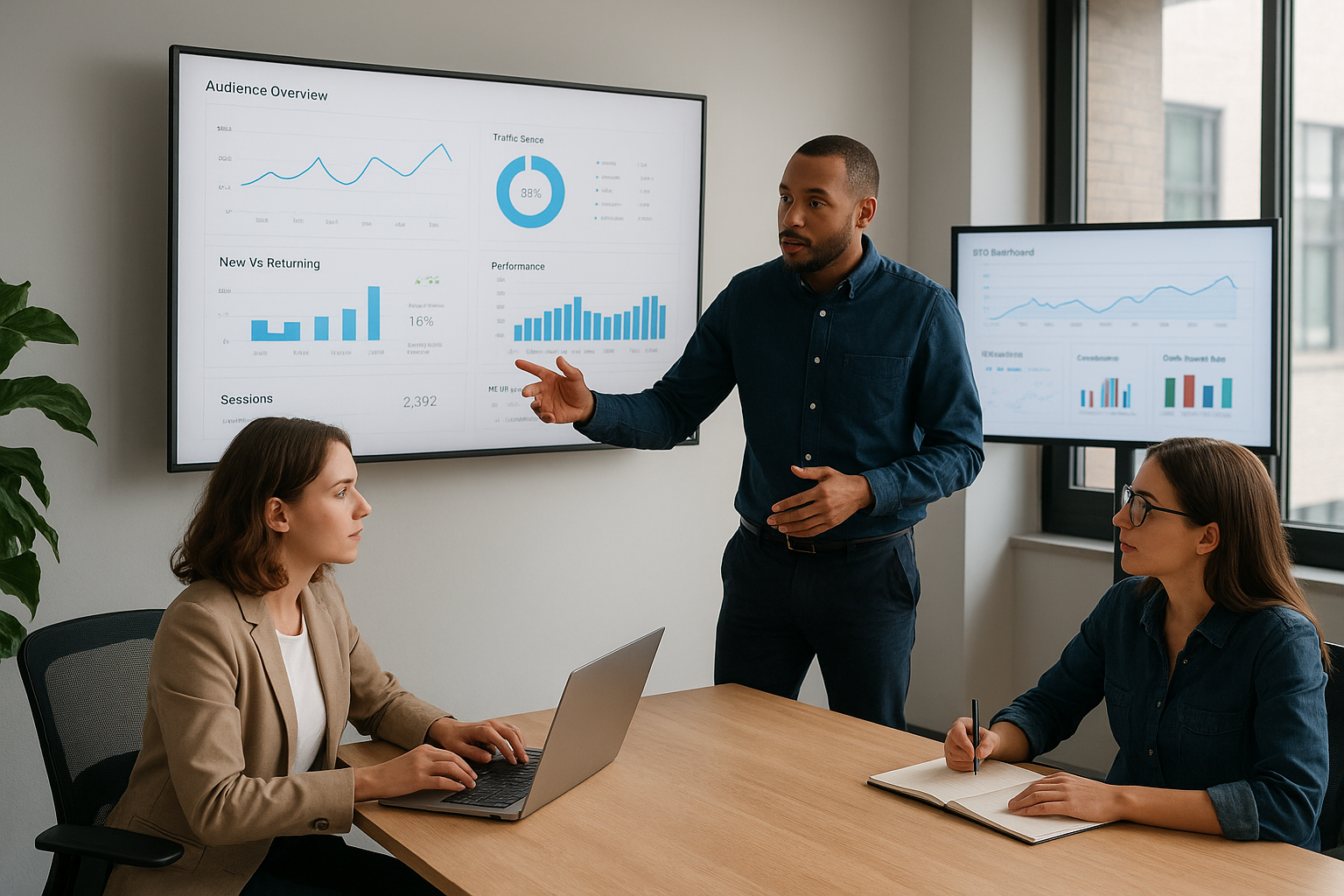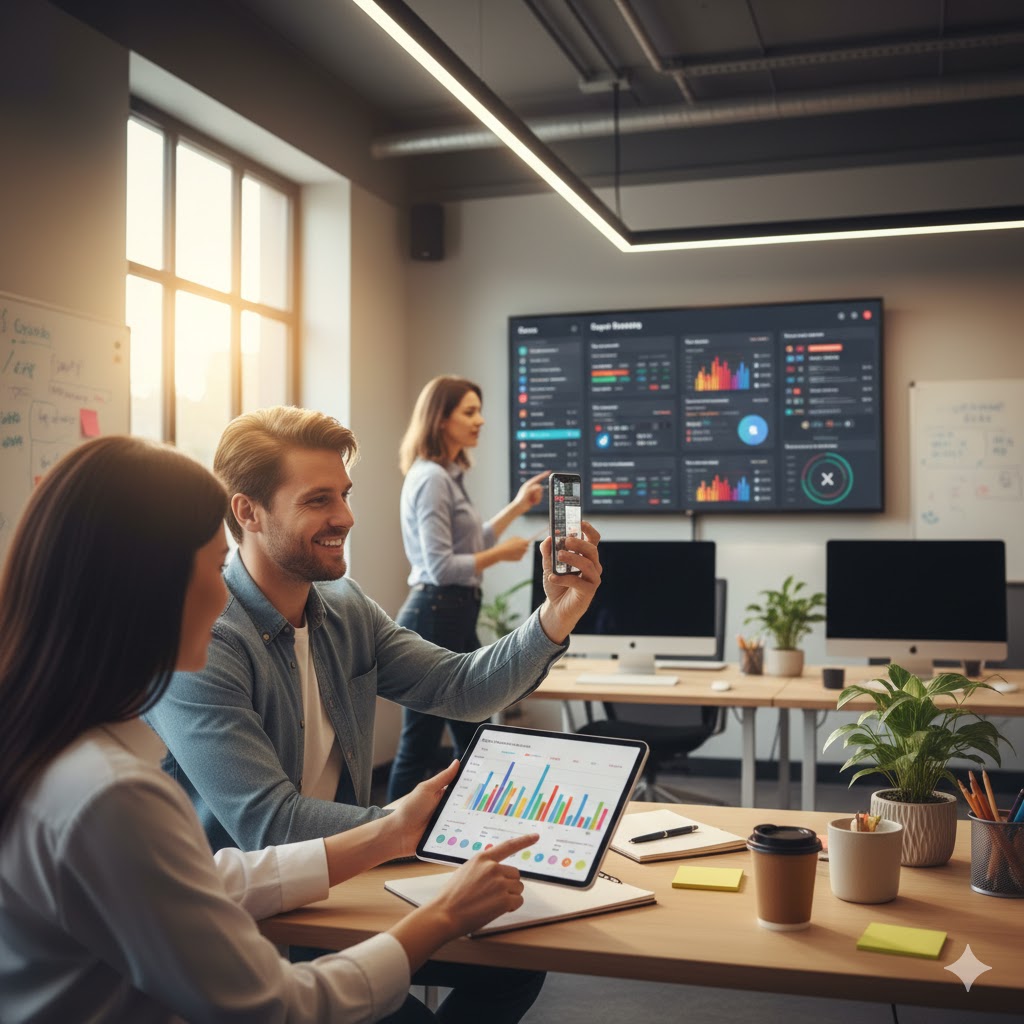
Top 10 SEO Strategies to Boost Your Business in 2025

AI-Powered Personalization: The Future of Digital Marketing in 2025
Digital marketing has always been about reaching the right customer, with the right message, at the right time. In 2025, automation is taking this principle to an entirely new level. Powered by artificial intelligence, machine learning, and sophisticated data analytics, marketing automation is transforming how businesses build relationships with customers. Instead of relying on guesswork or generic campaigns, companies now deliver hyper-personalized, dynamic, and timely interactions that drive measurable results.
What is marketing automation?
At its core, marketing automation is the use of technology platforms to streamline, automate, and measure repetitive marketing tasks. This includes automated email sequences, social media scheduling, customer segmentation, personalized content delivery, and multi-channel campaign management. In practice, it means businesses can scale their marketing efforts without losing the personal touch that customers expect.
The evolution of automation in 2025
Five years ago, automation often meant simple email drip campaigns or social media scheduling tools. Today, it integrates across the entire customer journey. Platforms connect customer data from CRMs, e-commerce systems, and analytics dashboards, allowing marketers to create seamless omnichannel experiences. For example, a potential customer who browses a product online can instantly trigger a tailored ad on Instagram, receive a personalized email with a discount, and get remarketed with relevant content across search engines.
Why automation matters for customer engagement
- Scalability: Brands can nurture thousands of leads simultaneously, without requiring manual follow-ups for each prospect.
- Personalization: AI algorithms analyze customer behavior to deliver highly relevant product recommendations, emails, and offers.
- Consistency: Customers receive timely messages across channels, creating a cohesive brand experience.
- Efficiency: Marketers spend less time on repetitive tasks and more time on strategy and creativity.
- Revenue growth: Automated lead nurturing drives higher conversion rates and improves customer lifetime value.
Key automation strategies for 2025
- Behavioral email campaigns: Automated workflows trigger emails based on customer actions—like cart abandonment, content downloads, or browsing history.
- AI-driven segmentation: Machine learning clusters customers into dynamic groups based on demographics, interests, and purchase intent.
- Social media automation: Scheduling tools now use predictive analytics to determine the best time to post for engagement and automatically adjust strategies.
- Chatbots & conversational AI: Automated chat systems on websites and messaging apps handle FAQs, qualify leads, and even process purchases.
- Omnichannel orchestration: Platforms ensure consistent messaging across email, SMS, push notifications, and social media.
Challenges and risks of automation
While automation brings tremendous opportunities, it also comes with challenges. Over-automation can make interactions feel robotic if not carefully balanced with human touch. Data privacy remains a concern, especially with stricter regulations like GDPR and CCPA. Businesses must also ensure they do not overwhelm customers with excessive notifications, which can lead to fatigue and unsubscribes. Finally, the success of automation depends on the quality of data—dirty or fragmented data can undermine personalization efforts.
Best practices for effective marketing automation
- Start with clean data: Consolidate and regularly update your customer data to improve accuracy and segmentation.
- Prioritize personalization: Go beyond using a customer’s name—customize messages based on interests, behavior, and purchase history.
- Test and optimize: Continuously run A/B tests on subject lines, timing, and content to improve engagement metrics.
- Balance automation with human touch: Use automation for efficiency but leave room for personal, manual engagement when needed.
- Monitor performance: Track KPIs like open rates, CTRs, conversions, and ROI to ensure campaigns deliver results.
The future of automation: hyper-personalization
The next wave of digital marketing automation goes beyond predictive analytics into real-time personalization. AI systems will dynamically generate emails, ads, and website content tailored to each individual. Voice assistants, AR/VR marketing experiences, and AI-driven content creation will further expand how brands interact with customers. By 2030, experts predict most customer journeys will be at least 70% automated, with AI acting as the central orchestrator of engagement.
Conclusion
Digital marketing automation in 2025 is no longer optional—it’s the backbone of modern customer engagement. Companies that embrace it can deliver experiences that are timely, relevant, and consistent across all channels. Those who resist risk falling behind as competitors leverage automation to build deeper relationships and drive measurable growth. The key is balance: combining the efficiency of automation with the authenticity of human creativity to create connections that last.







